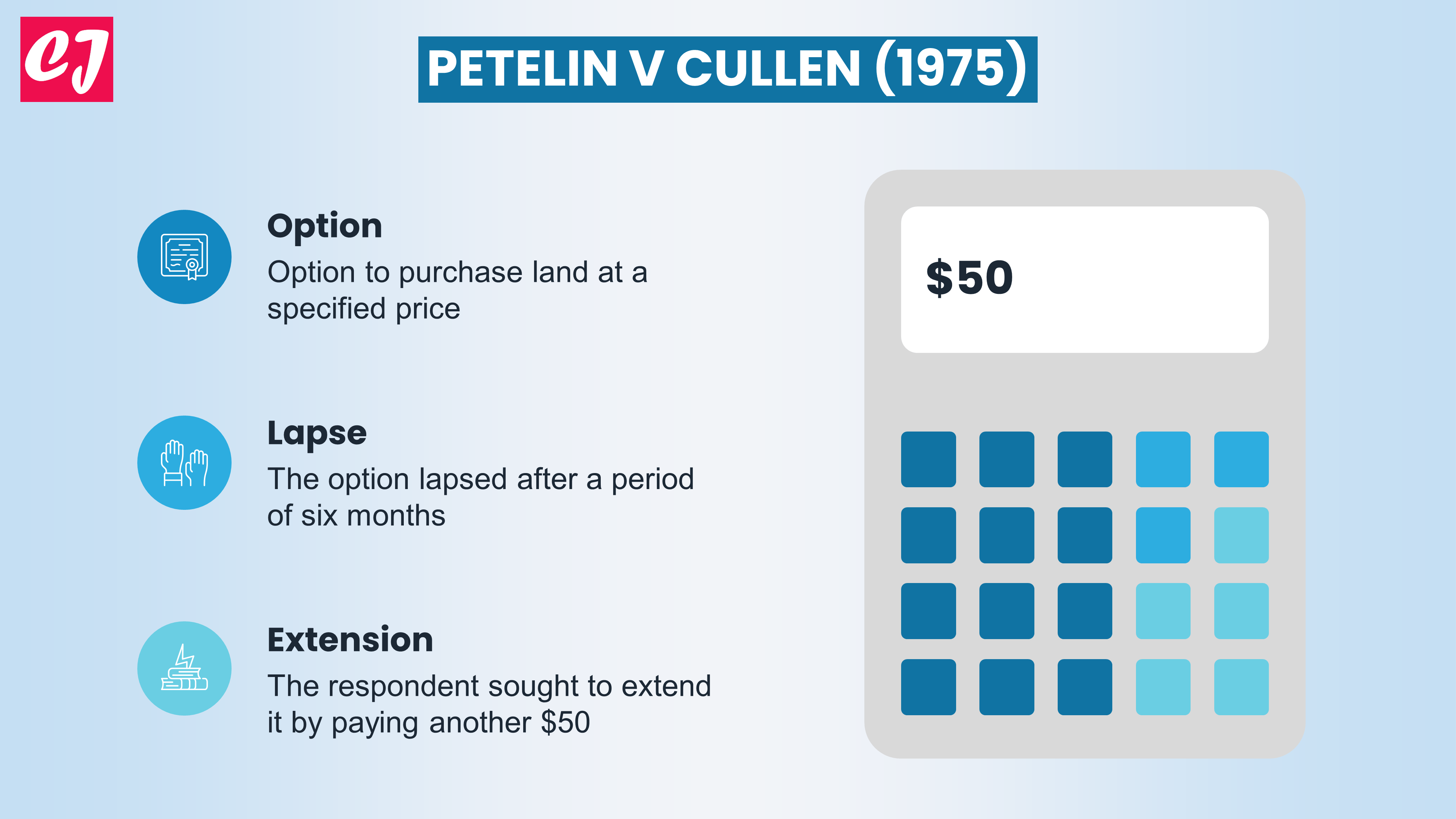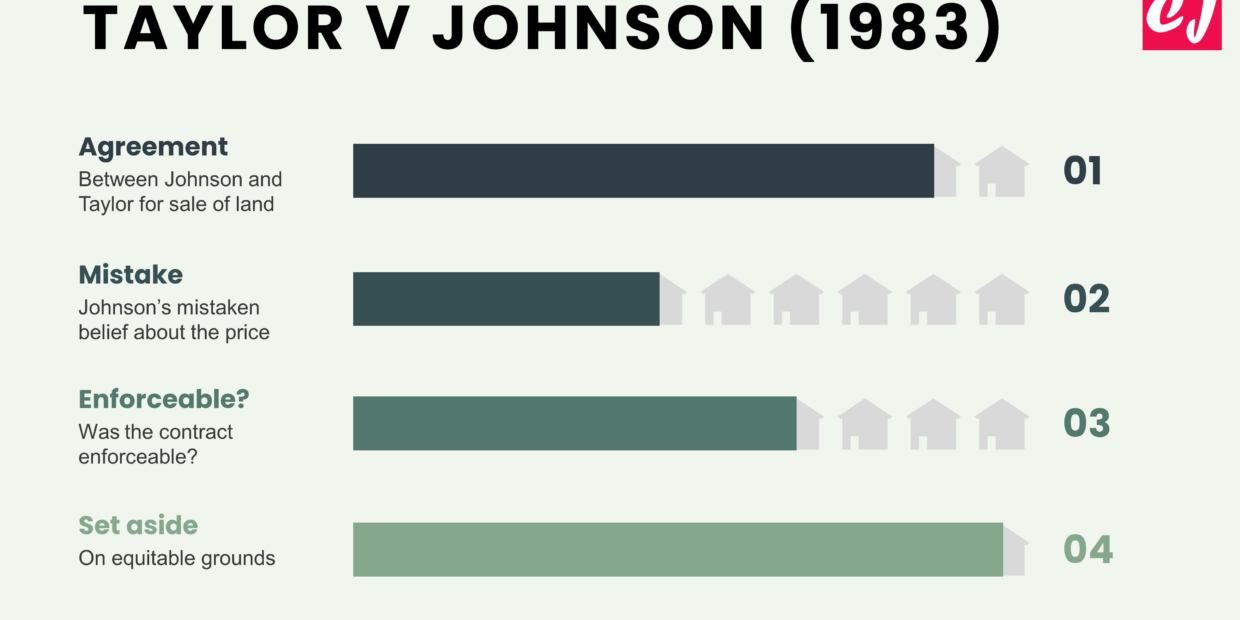Petelin v Cullen (1975) is a contract law case from Australia that threw light on the defense of non est factum. Given below are the…
Taylor v Johnson (1983) is a famous contract law case on the issue of unilateral mistake. The case involved an offer to purchase land and…

